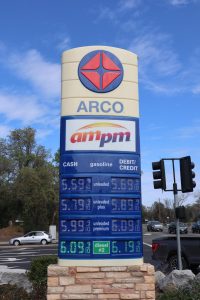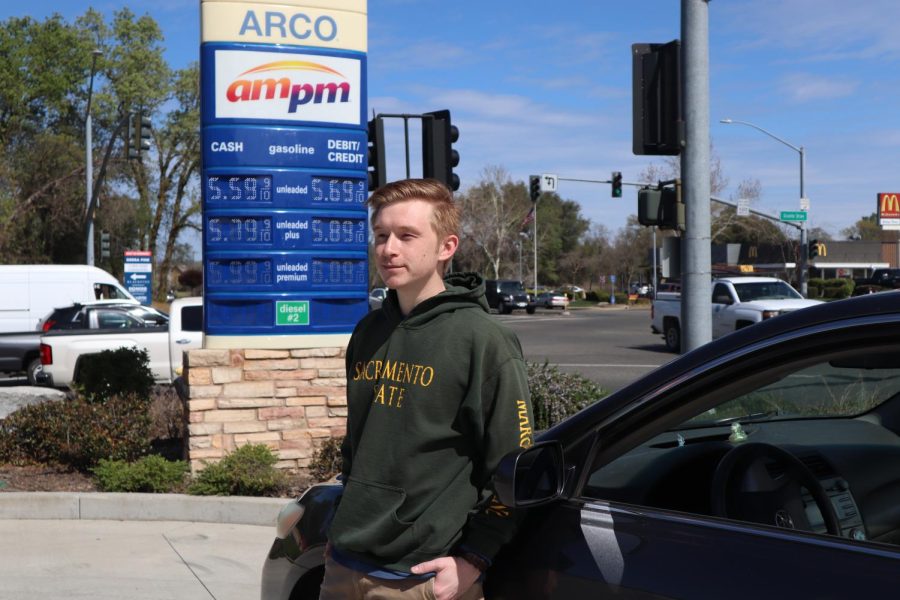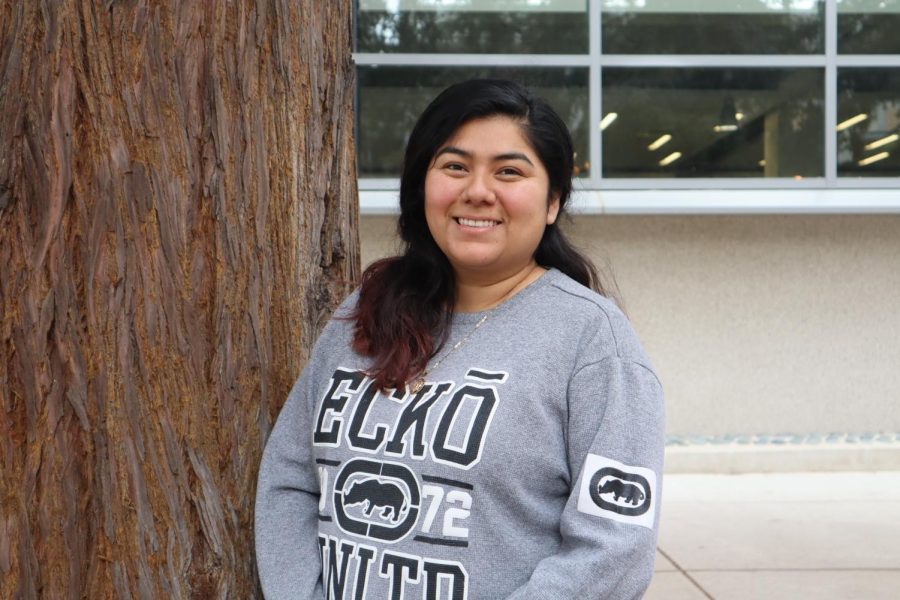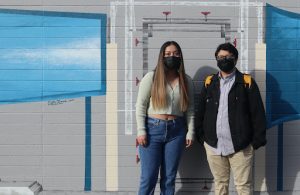The struggle is real: Gas prices are getting too high
Students who commute suffer from the rise in gas prices in the state
Fourth year economics major Daniel Kuffel stands in front of an Arco gas station on Thursday, March 17, 2022. He is one of many commuter students at Sacramento State University and says that the increase in gas prices within the state is a pain.
March 30, 2022
Students at Sacramento State are having a difficult time paying for their commute to school as California gas prices reach new heights due to an increased price of imported crude oil.
Only a fraction of Sac State’s 31,000 students live in campus housing— the majority commute to school.
The university is known to be a commuter school and has students who live between Sacramento and Stockton or further.
Political science and journalism major Mia Huss said that she commutes from a small town in Amador County and drives between 80-90 miles to school and back.

She said that the increase in gas prices makes it difficult for her to justify driving to campus to attend one class.
“I thought commuting was so smart, I thought that I was saving money,” Huss said. “Now I am not saving as much money and it’s just not how I planned to commute to be like.”
California gas prices have been reaching record heights since earlier this month and are among the highest in the United States.
According to AAA, the average California gas price is $5.79 per gallon whereas the national average gas price is $4.28, as of Thursday, March 17.
Students said that some of their commutes to school can be up to an hour or more, making it a long journey that requires repeated trips to the gas station.
“Usually it takes around a quarter tank of gas, so I fill it up twice a week,” fourth year economics major Daniel Kuffel said. “I commute six times a week; yeah it’s a pain.”
Kuffel commutes from Newcastle, making his journey to school nearly an hour or more depending on traffic.
Many students have other responsibilities outside of school that requires them to drive. Students like fourth year social work major Nancy Martinez commute for work as well as for their families, hiking up the gas bill every month.
“I’m a caregiver so I also provide my clients with transportation to stores and appointments,” Martinez said.
The gas prices began increasing after Russia invaded Ukraine in late February and have spiked since. According to the White House, President Joe Biden signed an Executive Order on Tuesday, March 8 declaring the ban on imported natural gas, oil, and other resources from Russia.
Kuffel talked about the economic aspect of the spike and how other students perceive it.
“Like everyone, I hate it,” Kuffel said. “I’m of the opinion that if [gas prices] were lower there would probably be a shortage of gas. Especially with supplies being shut down with Russia.”
In response to this spike, California Gov. Gavin Newsom announced in his State of the State Address on March 8 that he has a plan to aid Californians with the high price of gas.
“Working with the legislative leadership, I’ll be submitting a proposal to put money back in the pockets of Californians,” Newsom said.
This proposal of pausing the gas tax increase was originally suggested back in January but has since resurfaced, making it clear that more needs to be done by the state.
“I’m glad that California is apparently suspending the tax for a little bit,” Kuffel said. “But I am not sure how much is enough.”
Regardless of the tax suspension, students will still be commuting to Sac State for the remainder of the semester and onward.
Huss said that with the increase in gas prices, he wishes professors were more lenient about online instruction.
“If professors allowed that, or if Sac State had more online options, then commuter students would have more of a variety,” Huss said. “Especially with the gas prices, it’d be kind of helpful.”
Martinez suggested that the university should compensate students for a fraction of the gas payment.
“I think that for those students that do need it, they could provide gas cards,” Martinez said.








































































































































